News
-
 Tech
TechA new kind of spray is loaded with microscopic electronic sensors
For the first time, researchers have built circuits on microscopic chips that can be mixed into an aerosol spray.
-
 Oceans
OceansShallow reef species may not find refuge in deeper water habitats
Coral reefs in deep-water ecosystems may not make good homes for species from damaged shallow reefs.
-
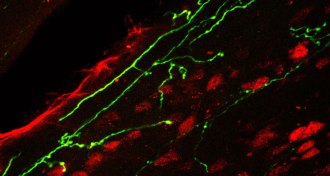 Health & Medicine
Health & MedicineHow a variation on Botox could be used to treat pain
Drugs that incorporate modified botulinum toxin provide long-term pain relief, a study in mice finds.
-
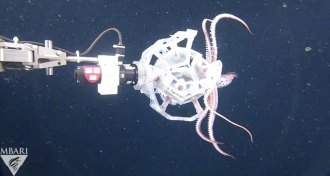 Animals
AnimalsNew ‘Poké Ball’ robot catches deep-sea critters without harming them
A machine that gently catches and releases animals underwater could help researchers take a more detailed census of the deep sea.
-
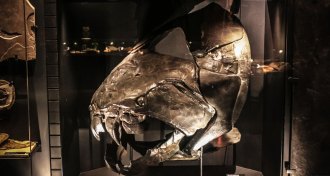 Paleontology
PaleontologyAn ancient swimming revolution in the oceans may have never happened
Swimmers may not have suddenly dominated the oceans during the Devonian Period after all: New analyses suggest they took over much more gradually.
-
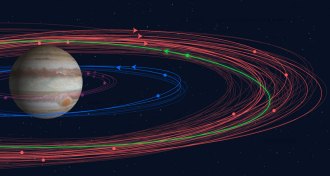 Planetary Science
Planetary ScienceJupiter has 12 more moons than we knew about — and one is bizarre
Astronomers found a dozen previously unknown moons of Jupiter, and one may be a remnant of a larger moon that was all but ground to dust.
-
 Environment
EnvironmentWildfires are making extreme air pollution even worse in the northwest U.S.
America’s air is getting cleaner — except in places that are prone to wildfires.
-
 Neuroscience
NeurosciencePregnancy depression is on the rise, a survey suggests
Women today may be at greater risk of depression during pregnancy than previous generations.
-
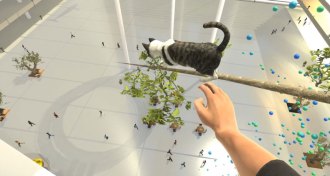 Health & Medicine
Health & MedicineScared of heights? This new VR therapy could help
Virtual reality may be good training ground for facing your fears in real life.
-
 Life
LifeThe right mix of gut microbes relieves autism symptoms in the long run
Replacing missing gut microbes improves autism symptoms in children even two years later.
-
 Archaeology
ArchaeologyÖtzi loaded up on fatty food before he died
A new analysis provides a complete picture of what was in Ötzi the Iceman’s stomach when he died.
-
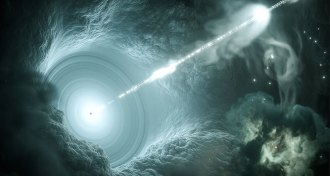 Particle Physics
Particle PhysicsA high-energy neutrino has been traced to its galactic birthplace
The high-energy particle was born in a blazar 4 billion light-years away, scientists report.